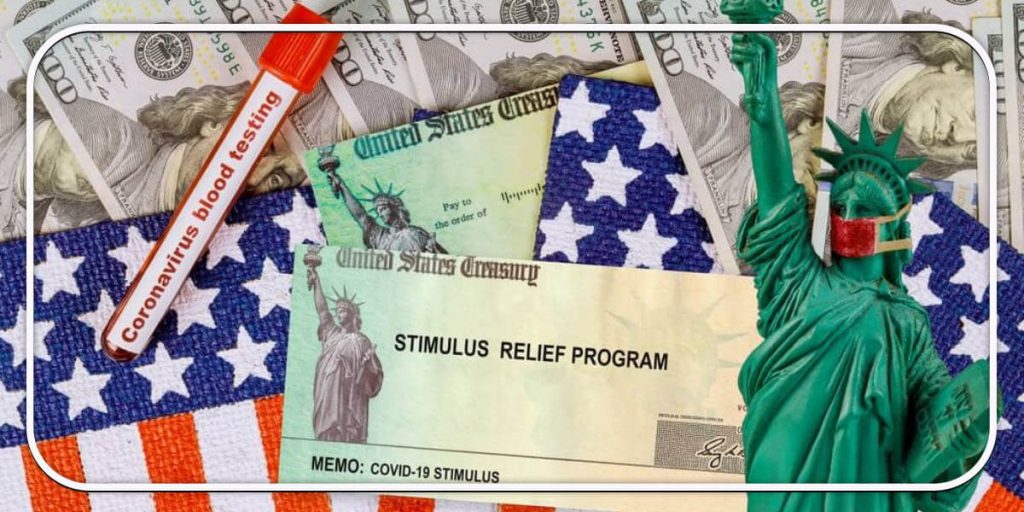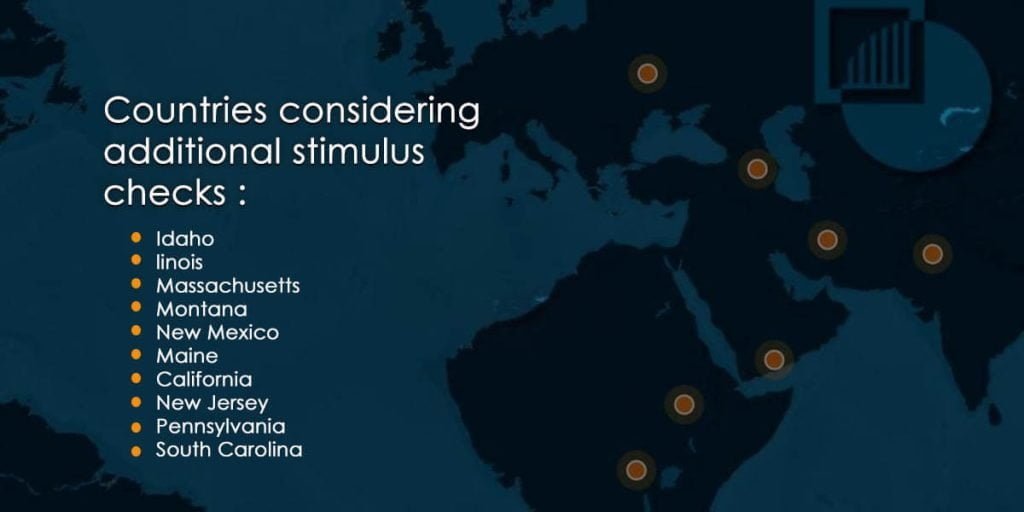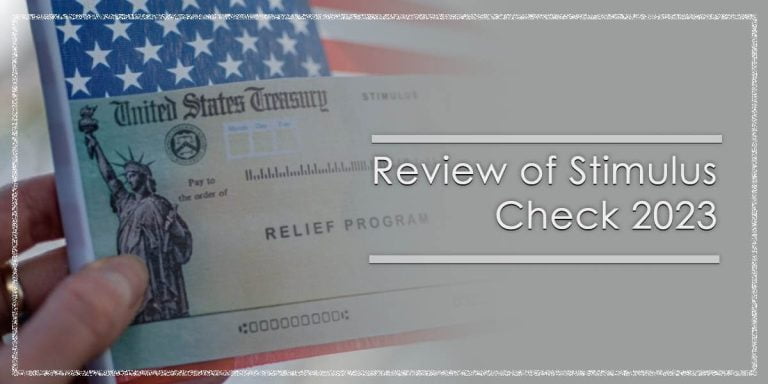The federal government’s 2024 stimulus check ended years ago, but some states have provided financial relief through tax refund checks or inflation-reduction payments. Last year, more than 20 states issued lump sum payments to eligible residents, and some states will continue to offer rebates in 2024.
What is the Stimulus Check 2024?
The 2024 stimulus check is a financial relief package introduced by the government to stimulate economic growth and support people in financial difficulty. This is the third round of stimulus checks for 2024, following similar measures in previous years. The program is designed to put funds directly into the hands of the right people, enabling them to meet basic needs, increase consumer spending and fuel economic recovery. 2024 Incentive Test Eligibility Criteria
Determining Eligibility
Let’s look at some of the more common factors that are often considered when determining eligibility:
Income level
Many stimulus packages take individual or household income into account. There may be income thresholds or limits above which individuals or households may not be eligible for the stimulus payment. These thresholds may vary depending on filing status (single, married, filing jointly, etc.) and number of dependents.
Tax Status

The government often looks at tax return status to determine eligibility for the 2024 stimulus test. Those who file tax returns individually or jointly with a spouse are generally considered to be eligible for the incentive payment. Non-applicants may have a different process to ensure they qualify for incentive testing.
Family Members
Some stimulus packages provide additional funding for eligible dependents. The definition of a dependent can vary, but generally includes children, seniors, or people with disabilities who are financially supported by the taxpayer.
Citizenship or Resident Status
Eligibility for the 2024 stimulus check may be limited to citizens or residents of the countries that implement the program. Non-citizens or non-residents may have different criteria or exemptions. States are considering more stimulus checks in 2024
Countries Considering Additional Stimulus Checks 2024
Find out if your country is on the list and if you qualify for stimulus support.

New Mexico
In 2024, New Mexico citizens will be able to take advantage of not one but two different tax reductions. Individuals who file jointly receive a $1,000 tax refund, while those who file individually receive $500. The New Mexico Department of Taxation and Revenue has extended the deadline for filing individual income tax returns for taxable years beginning in 2021 to May 31, 2024. If a New Mexican citizen does not meet the requirements for the aforementioned refund, they may be eligible for a $500 or $1,000 stipend. The Department of State Personnel has been given the authority to allocate $15 million in funding for these compensations. Here is the page where applicants may see their application status.
Massachusetts
State tax refunds in Massachusetts were first distributed in November 2022 and have since concluded. To those who qualify, the Commonwealth of Massachusetts will return 14.0312 percent of their 2021 tax bill. You might still be eligible if you haven’t submitted your 2021 tax return by the end of September. December 15, 2024, as reported by Mass.gov. If you are granted a refund, it will be processed and sent to you within a month of your application.
Illinois
October The Illinois Department of Revenue states that the deadline to submit for an income tax refund or a property tax refund is December 17, 2022. These debts have been largely settled. The state auditor, however, has stated that payments will continue indefinitely.
Idaho
Refunds and “special session rebates” were distributed in Idaho in March and September of 2022. The Idaho Tax Commission said that the bulk of refund payments for 2022 have been issued but that the agency will continue to provide refunds as additional qualifying taxpayers file forms. Where’s My Rebate? is a tool available at tax.idaho.gov/rebate that will let you know the current whereabouts of your rebate.
Montana
Montana residents may qualify for a property tax credit of up to $675 and/or an income tax credit of up to $2,500 for joint filers ($1,250 for other categories) or state tax liability, whichever is smaller. As of July 2024, taxpayers in Montana will be able to get refunds from the state’s Department of Commerce and Income Tax. These rebates will be given out until December 31, 2024, on a first-come, first-served basis. The agency’s transaction portal and paper forms will be available to taxpayers for filing property tax refund claims for the year 2022 beginning on August 15, 2024. The deadline for submitting claims is October 1, 2024. On August 15, 2024, the state will begin accepting requests for a tax refund for the year 2024, with a submission deadline of October 15, 2024. Month of January, 2024.
Maine
Maine residents who live full-time in the state and file their 2021 tax returns by Oct. 10 will receive the new 2024 payment. March 31, 2022. This is called the ‘Winter Energy Relief Payment’. As long as the federal adjusted gross income (AGI) reported on your 2021 Maine tax return is less than $100,000 (single filers and married couples filing separate returns), $150,000 (head of household), or $200,000 (married filers filing a joint return). ), taxpayers may be eligible for payment until March 31, 2024.
Things looked bleak in 2020 as the Covid-19 pandemic raged and there was uncertainty about what would happen next. Then a little light appeared in the darkness when it was announced that the 2024 stimulus checks would be sent to Americans struggling financially due to the global shutdown. Although the 2024 economic stimulus checks have been sent to Americans several times during the epidemic, it appears that the federal government has no plans to send them again. However, some states plan to send stimulus checks to residents in 2024.
New Jersey
Homeowners in New Jersey earning less than $150,000 per year in 2024 will be eligible for a $1,500 tax credit under the ANCHOR Tax Credit Program. It is anticipated that homeowners with annual incomes between $150,000 and $250,000 will each get a payout of $1,000. Renters filing taxes in New Jersey in 2019 with an adjusted gross income of $150,000 or less will receive a $450 refund. Grants of $500 are available through the ITIN program for each ITIN holder included on a tax return from qualified New Jersey residents, as per state tax requirements.
California
Depending on your income, filing status, and the number of dependents you claim, you might owe the government anywhere from $200 to $1,050. Get in touch with the California Franchise Tax Board to see if you meet the requirements. The California stimulus payment, also known as the “middle-class rebate,” is available to persons who have made California their permanent home for at least six years and who submit their state taxes for 2020 by October 15, 2021. Payment is expected to be made in the first half of 2024 if California residents cannot claim a dependent on a tax return in 2020 because the taxpayer’s adjusted gross income was less than the state’s threshold ($250,000 for single filers or married couples filing separately, or more than $500,000 for joint filers).
Pennsylvania
Pennsylvania residents who are 65 or older, widowed after 50 years of marriage, or handicapped after 18 years of age may be eligible for a rebate on their property taxes or monthly rent under the state’s Property Tax/Rent Rebate Program. For homeowners, the cap is $35,000, while renters must make no more than $15,000.
Remember that your 2021 property tax refund will be capped at 70% and that 50% of your Social Security payments will be disallowed as well.
South Carolina
South Carolina tax refunds for 2021 will be split into two payments to account for the state’s recovery from Hurricane Ians.
All entrants must do by the end of October. If you filed by February 17, 2022, you should have gotten your money by now; if you submitted on February 15, 2024, you should receive your money by March 31, 2024. You may check the progress of your rebates with the South Carolina Department of Revenue Tracker if you are a South Carolina resident.

